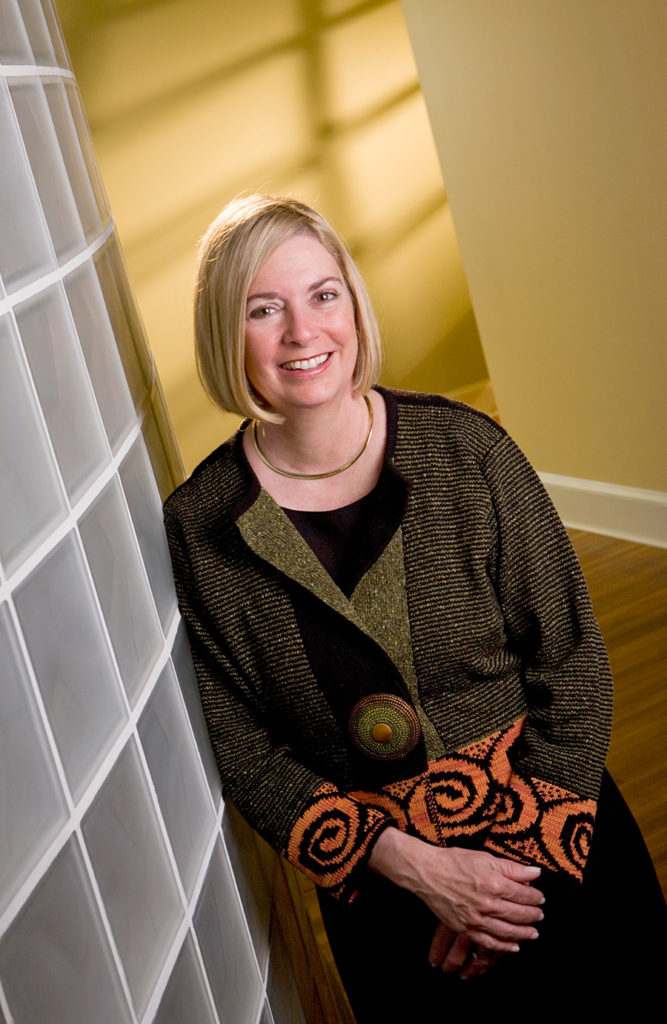Maureen Grasso, dean of the Graduate School since 2002, discusses the school’s centennial and the importance of graduate education in Georgia with Columns.
Columns: The Graduate School is celebrating its centennial this year. Why is the centennial important to recognize?
Grasso: The centennial allows us to “look backward to spring forward.”
The Graduate School was founded in 1910, and, although master’s degrees had been awarded prior to 1910, this action established a common set of standards for awarding graduate degrees across all programs.
Fast forward 100 years. The total enrollment has grown from seven to more than 7,000, with a diverse student population. We are now celebrating a storied history of continued growth in the size, diversity and quality of our graduate students and programs.
Columns: What does the centennial mean for modern graduate education? In other words, as an academic institution, what can we learn by looking back at the last 100 years?
Grasso: As we look back over the last 100 years, we can see the numerous changes that have occurred at the university and in Georgia.
Our state’s economy has moved from being based upon agriculture to manufacturing and business, and, now, to a knowledge-based society. Many of these changes have been the result of research done at the university as well as serving as the catalyst for changes in graduate education.
This history shows that one of the most important things the Graduate School can do is be open and responsive to change. I have worked to make the Graduate School responsive to our current needs by encouraging faculty input, using data-based management and working to improve support for graduate students. Our impressive record of growth in size and quality is a direct response of the Graduate School’s responsiveness to current issues and future trends.
Columns: How do you see graduate education changing at UGA?
Grasso: Particularly in the past 50 years, graduate education has gone from being designed only for a small portion of people who are academically oriented into becoming a necessity for many occupations.
Graduate education has ensured that the citizens of Georgia and, more broadly, international students, have the skills they need to help our society thrive. In 1960, UGA awarded 224 graduate degrees. This past year, we awarded more than 2,100 graduate degrees. While Georgia continues to improve in its educational attainment, the state is still below the national average for graduate and professional degrees. Increasingly, graduate degrees are becoming a necessity for economic growth and quality of life.
Interdisciplinary degrees are key to exploring new ideas that cross traditional disciplinary boundaries. The “professional science master’s” and “professional master in social science and humanities” are examples of the types of degrees that take a new approach to preparing students for the workplace.
Columns: What are the major opportunities and challenges for the Graduate School in the future? How are you and the Graduate School preparing to address these?
Grasso: I believe that we have excellent graduate faculty and that we can recruit top students, but we are hitting the wall financially. We need funds to retain the best graduate faculty members and recruit graduate students with stipends that allow us to compete for the best students. Student debt is a major concern.
One of the things we have to do is build an endowment for graduate education at UGA, like the University of North Carolina-Chapel Hill and Michigan have done, to support top graduate students. I believe we are competitive in terms of quality of graduate education; however, in certain fields we are no longer financially competitive. Finding ways to provide more support for graduate students is essential for our future. We must work together to ensure graduate education remains a growing enterprise at UGA.
Building interdisciplinarity is an important focus for our future, yet we face challenges within the historical structures of the university. We need to learn how to permeate those walls. Faculty members are engaged in innovative ways of breaking down the boundaries between departments, and deans are making more joint faculty hires. The recipient of our first Innovation in Graduate Education Award, the Interdisciplinary Life Sciences program, demonstrates the effort required and the benefits of this approach.
Columns: You’ve been the dean of the Graduate School at UGA for eight years. What are your personal goals for further improving UGA’s graduate education?
Grasso: Enhancing the value and quality of a graduate degree from UGA is at the core of what the Graduate School does. It can only be achieved by working in partnership with faculty, students and administrators, as well as alumni and friends of the university. I want to continue working with these groups to maximize the graduate education experience for our students, support the faculty who guide their learning and celebrate the accomplishments of the individuals and programs that have and will continue to define the next century of graduate education.
